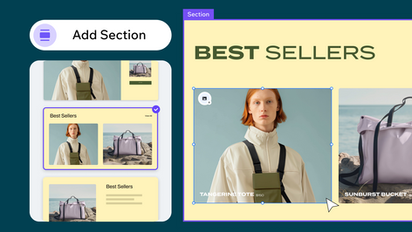Create Web App Best Practices
Create Web App Best Practices
Create Web App
Web designers play a crucial role in the creation and development of websites across the internet. They are responsible for designing the layout, graphics, and overall look of a website while also ensuring that it is user-friendly and functional. With the ever-growing importance of having a strong online presence, the demand for skilled web designers continues to rise.

Getting Started with Create Web App
Create Web App
1. Start with a unique concept
When developing a new recipe, it is important to start with a unique concept that sets your dish apart from others. Consider combining unexpected flavors, using new cooking techniques, or incorporating unusual ingredients to create a recipe that will pique your readers’ interest. You can draw inspiration from different cuisines, culinary trends, or seasonal ingredients to come up with a concept that is both original and appealing.
2. Experiment with different ingredients and flavors
Building recipes is all about experimentation and creativity. Don’t be afraid to try out new ingredients and flavor combinations to create exciting and delicious dishes. Consider incorporating fresh herbs, spices, citrus zest, or other aromatic ingredients to enhance the flavors of your recipe. Experimenting with different cooking techniques, such as grilling, roasting, or braising, can also add complexity and depth to your dishes.
3. Consider dietary restrictions and preferences
When building recipes for your website, it is important to consider the dietary restrictions and preferences of your audience. Make sure to provide options for different dietary needs, such as vegetarian, gluten-free, dairy-free, or vegan recipes. Including nutritional information, such as calorie count, macronutrients, and allergen information, can also make your recipes more accessible and appealing to a wider audience.
4. Include detailed instructions and tips
When writing out your recipes, be sure to provide detailed instructions that are easy to follow. Include step-by-step directions, cooking times, and temperatures, as well as helpful tips and tricks to ensure success in the kitchen. Consider including photos or videos to visually demonstrate each step of the cooking process, making it easier for your readers to replicate your recipes at home.
5. Test your recipes
Before publishing a new recipe on your website, be sure to test it multiple times to ensure that it is accurate and delicious. Invite friends or family members to sample your dishes and provide feedback on the taste, texture, and presentation. Adjust the seasoning, cooking times, or ingredient ratios as needed to perfect your recipe before sharing it with your audience.
6. Engage with your audience
Building recipes on your website is not just about creating delicious dishes – it is also about engaging with your audience and building a community around your food blog. Encourage your readers to leave comments, ask questions, and share their own experiences with your recipes. Consider hosting cooking demonstrations, virtual cooking classes, or recipe contests to interact with your audience and showcase your culinary skills.
Website builders are tools that allow users to create a website without needing to know how to code. They provide pre-designed templates and intuitive drag-and-drop features that make it easy for even the least tech-savvy individuals to create a professional-looking website. With hundreds of website builders available on the market, choosing the best one for your small business can be a daunting task. In this article, we will discuss some of the best website builders for small businesses to help you make an informed decision.
1. Wix
Wix is one of the most popular website builders on the market, and for good reason. It offers a wide range of professionally designed templates that are customizable to suit your business’s branding and style. Wix also has a user-friendly drag-and-drop interface that makes it easy to add text, images, videos, and other elements to your website. In addition, Wix offers a variety of features such as e-commerce functionality, blog integration, and SEO tools to help you optimize your website for search engines.
2. Squarespace
Squarespace is another highly popular website builder known for its sleek and modern templates. It is a great choice for small businesses in creative industries such as design, photography, or fashion, as Squarespace’s templates are visually striking and can be easily customized to showcase your work. Squarespace also offers e-commerce functionality, blogging capabilities, and built-in SEO tools to help you attract more visitors to your website.
3. Weebly
Weebly is a user-friendly website builder that is perfect for small businesses looking to create a professional-looking website quickly and easily. Weebly offers a variety of templates that are fully customizable, along with drag-and-drop functionality that allows you to create a website without any technical expertise. Weebly also provides e-commerce tools, blogging capabilities, and SEO features to help you grow your online presence.
4. Shopify
If your small business is primarily focused on selling products online, Shopify is the website builder for you. Shopify is an e-commerce platform that allows you to create a fully functional online store with ease. It offers a variety of customizable templates specifically designed for e-commerce, along with features such as inventory management, payment processing, and shipping options. Shopify also provides built-in SEO tools to help you attract more customers to your online store.
5. WordPress
WordPress is a powerful content management system that allows you to create a highly customizable website for your small business. While WordPress is more complex than some other website builders, it offers unparalleled flexibility and control over your website’s design and functionality. With thousands of plugins and themes available, you can create a website that perfectly suits your business’s needs. WordPress also provides e-commerce capabilities, blogging features, and SEO tools to help you create a successful online presence.

Create Web App Resources
Create Web App
In conclusion, the cost of web design can vary widely depending on a number of factors including complexity, customization, platform, and ongoing maintenance. By understanding the factors that influence cost and working with a reputable web design agency, you can ensure that you get the best value for your money and create a website that meets your business objectives. Remember that your website is an investment in your business’s future, so it’s worth investing in quality design and functionality to help your business stand out online.


